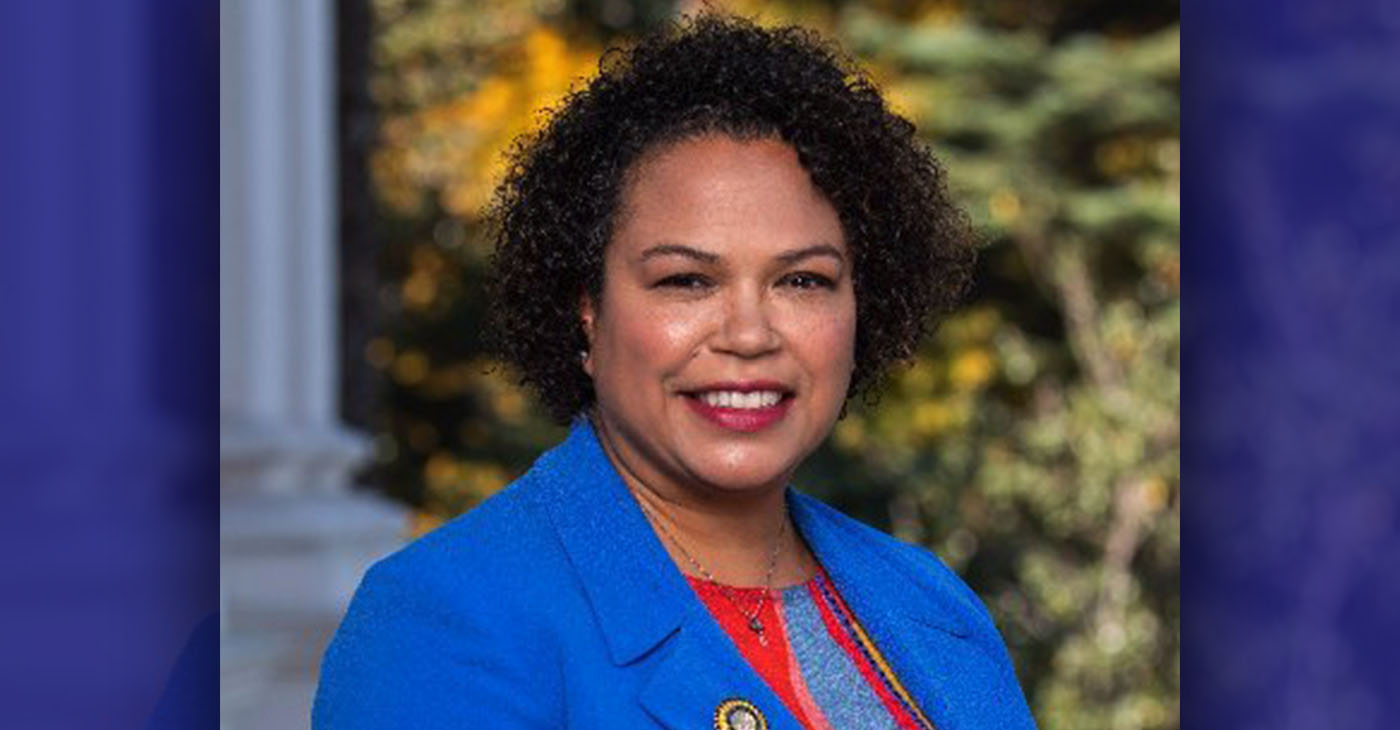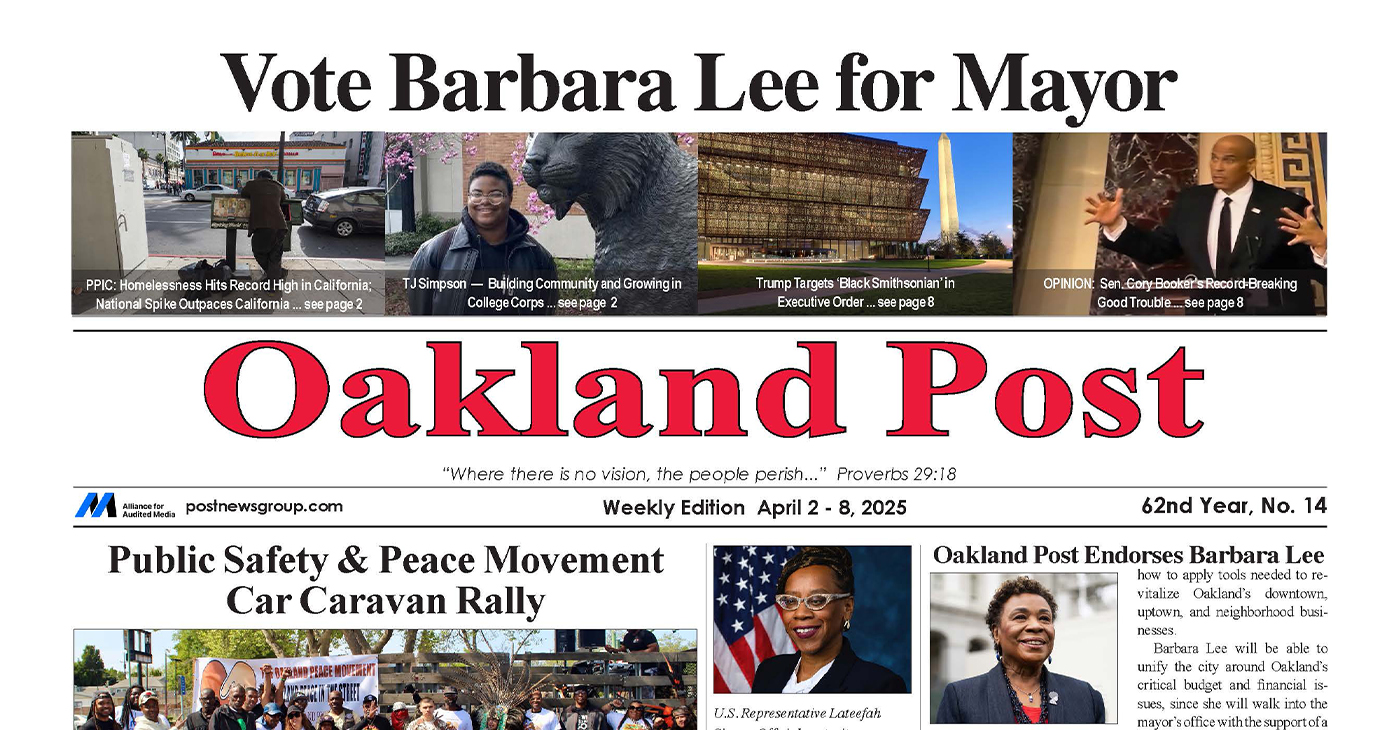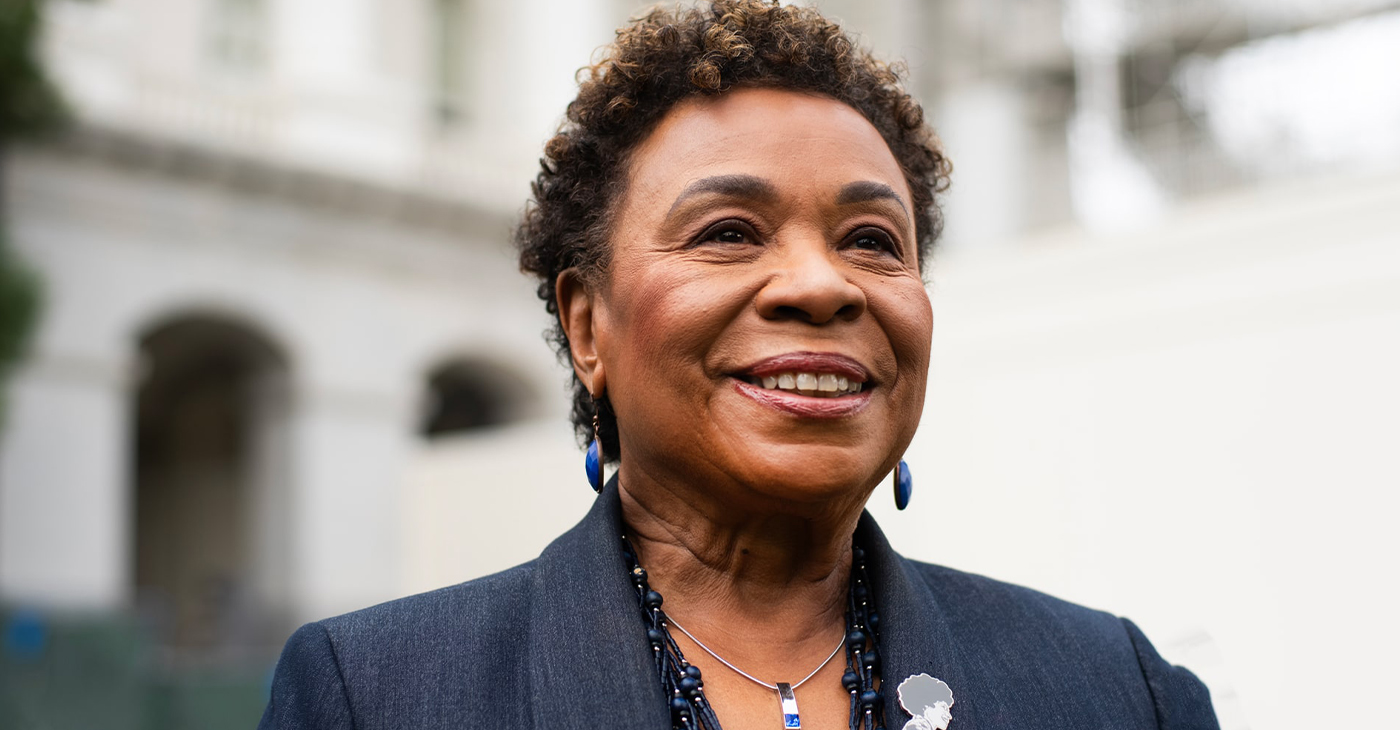Activism
COMMENTARY: Attacks on Assemblymember Bonta’s Appointment to Committee Chair Is Bad Journalism
The press could focus on covering priorities set by Attorney General Bonta for his office. Among his priorities are combating hate crimes and protecting civil rights, advancing criminal justice reform, protecting consumers, defending California’s environment, and enhancing public safety. These are important issues that deserve our attention, and it is disappointing to see them being overshadowed by baseless allegations of conflict of interest.

By Paul Cobb
As the publisher of the Oakland Post, I am disappointed with recent mainstream media coverage and editorials trying to make tabloid news out of Assemblymember Mia Bonta’s appointment as chair of the California Assembly Budget Subcommittee #5 on Public Safety.
Assemblymember Bonta (D- Oakland), a member of the California Legislative Black Caucus, was recently appointed chair by Assembly Speaker Anthony Rendon, and some reporters and newspaper editors have baselessly suggested that the appointment is a conflict of interest because she he married to Attorney General Rob Bonta and her committee oversees funding for the state Department of Justice.
As journalists, we have a responsibility to report on conflicts of interest and hold public officials accountable for any improprieties. However, it is equally important to exercise caution and avoid making unfounded accusations that could damage the reputation of public officials.
Speaker Rendon has stated that the Legislature’s budget process is designed with checks and balances to ensure that the best possible budget is passed. According to him, no elected official can ever personally or financially benefit from the budget process. The legislature does not set salaries or benefits for state constitutional officers such as Rob Bonta.
Bonta’s appointment as chair is a recognition that she has the skills and experience necessary to fulfill her role effectively and impartially. Rendon has expressed confidence that she will be independent in her legislative judgment.
The work of Budget Subcommittee #5 consists of hearing, reviewing, and making recommendations to the full Budget Committee concerning the Governor’s budget proposals for the courts, the Department of Corrections and Rehabilitation, the Department of Justice, the Military Department, the Governor’s Office of Emergency Services, and other public safety departments.
Instead of focusing on baseless claims of conflicts of interest responsible news reporters should be covering real news events occurring around the state. There are countless issues that require our attention, from the ongoing homelessness crisis to the urgent need for criminal justice reform.
The press should be covering the important work that Bonta is doing to promote public safety and reduce recidivism in her district where sadly gun violence currently disproportionately ravages communities of color. These are her constituents’ legislative priorities, and Bonta has a strong track record of fighting for their needs.
Or the press could focus on covering priorities set by Attorney General Bonta for his office. Among his priorities are combating hate crimes and protecting civil rights, advancing criminal justice reform, protecting consumers, defending California’s environment, and enhancing public safety. These are important issues that deserve our attention, and it is disappointing to see them being overshadowed by baseless allegations of conflict of interest.
Mia Bonta has made it clear that the suggestion of a conflict of interest shows a lack of understanding about the legislative budgeting process.
The budget process starts with the Governor’s proposed budget bill, introduced by the full Budget Committee chair as required by the Constitution. There are five Assembly budget subcommittees that recommend amendments to the budget bill as the principal focus of their agendas.
The Governor’s chief fiscal advisor, the Department of Finance leads on budget matters for the executive branch. Finance and departmental officials, as well as staff of the Legislative Analyst’s Office, advocates and members of the public, appear at public hearings to answer questions.
Budget subcommittees focus on specific issues in their agendas, such as how much more or less funding a division of a department needs to perform a specific function.
The state’s budget is finalized by negotiations on thousands of budget items led by the Governor, the Pro Tem, and the Speaker (a.k.a. the “Big Three”), on behalf of their branches of government. The staff of the Governor’s administration, the Senate, and the Assembly carry out these negotiations at the three leaders’ direction.
The Department of Justice – as a separate constitutional office – is not directly involved in those concluding negotiations, as the executive branch in those talks is represented by the Governor.
Mia Bonta is an outstanding Assembly member and public servant who is committed to representing her constituents with integrity.
Rob Bonta, who held the same Assembly seat before being appointed Attorney General by Gov Newsom and winning election to the office last November also serves his office with integrity.
The media focus should be on covering both of their efforts to promote public safety and make California a better place for all citizens.
I urge all reporters and editors to uphold the principles of responsible journalism and prioritize the truth and accuracy of their reporting over sensationalism and clickbait. The public deserves better than to be misled by unfounded innuendo.
We need media that is focused on reporting the real news and holding elected officials accountable for their actions and decisions.
The Black press has a responsibility to step up and do its part to foster a more informed and engaged public and not allow mainstream media and newspapers to marginalize Black leaders without pushing back especially when their reporting shows ignorance.
Activism
Oakland Post: Week of April 2 – 8, 2025
The printed Weekly Edition of the Oakland Post: Week of April 2 – 8, 2025

To enlarge your view of this issue, use the slider, magnifying glass icon or full page icon in the lower right corner of the browser window.
Activism
Oakland Post Endorses Barbara Lee
Barbara Lee will be able to unify the city around Oakland’s critical budget and financial issues, since she will walk into the mayor’s office with the support of a super majority of seven city council members — enabling her to achieve much-needed consensus on moving Oakland into a successful future.

As we end the celebration of Women’s History Month in Oakland, we endorse Barbara Lee, a woman of demonstrated historical significance. In our opinion, she has the best chance of uniting the city and achieving our needs for affordable housing, public safety, and fiscal accountability.
As a former small business owner, Barbara Lee understands how to apply tools needed to revitalize Oakland’s downtown, uptown, and neighborhood businesses.
Barbara Lee will be able to unify the city around Oakland’s critical budget and financial issues, since she will walk into the mayor’s office with the support of a super majority of seven city council members — enabling her to achieve much-needed consensus on moving Oakland into a successful future.
It is notable that many of those who fought politically on both sides of the recent recall election battles have now laid down their weapons and become brothers and sisters in support of Barbara Lee. The Oakland Post is pleased to join them.
Activism
Oakland Post: Week of March 28 – April 1, 2025
The printed Weekly Edition of the Oakland Post: Week of March 28 – April 1, 2025

To enlarge your view of this issue, use the slider, magnifying glass icon or full page icon in the lower right corner of the browser window.
-

 Activism2 weeks ago
Activism2 weeks agoWe Fought on Opposite Sides of the Sheng Thao Recall. Here’s Why We’re Uniting Behind Barbara Lee for Oakland Mayor
-

 #NNPA BlackPress3 weeks ago
#NNPA BlackPress3 weeks agoRev. Dr. Jamal Bryant’s Black Church Target Boycott Mobilizes 150,000
-

 Activism3 weeks ago
Activism3 weeks agoSan Francisco Is Investing Millions to Address Food Insecurity. Is Oakland Doing the Same?
-

 #NNPA BlackPress2 weeks ago
#NNPA BlackPress2 weeks agoRecently Approved Budget Plan Favors Wealthy, Slashes Aid to Low-Income Americans
-

 Activism2 weeks ago
Activism2 weeks agoFaith Leaders Back Barbara Lee for Mayor, Criticize Candidate Loren Taylor for Dishonest Campaigning
-

 Activism3 weeks ago
Activism3 weeks agoOakland Post: Week of March 12 – 18, 2025
-

 Activism2 weeks ago
Activism2 weeks agoGroup Takes First Steps to Recall District Attorney Diana Becton
-

 #NNPA BlackPress3 weeks ago
#NNPA BlackPress3 weeks agoPRESS ROOM: The Urban One Podcast Network Announces Los Angeles Wildfires Podcast, ‘Altadena: After the Fire’



















































